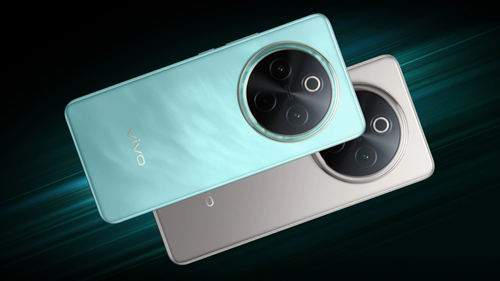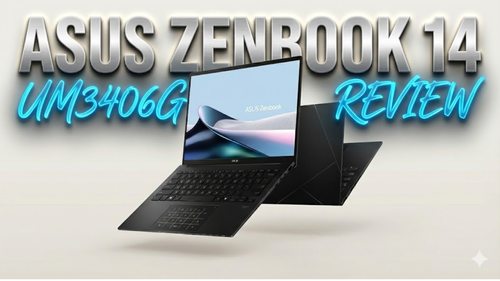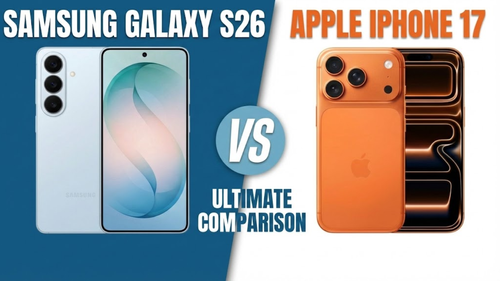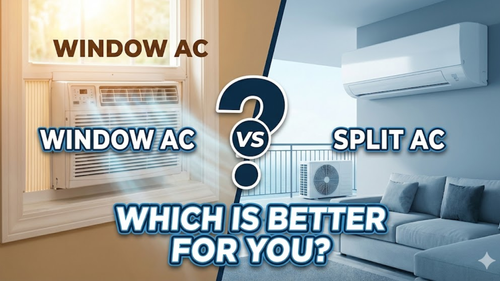Ad
Articles
How to Maintain Your Washing Machine to Increase Its Lifespan: A Comprehensive Guide for Indian Households

In today's busy Indian homes, a washing machine is more than just an appliance—it's a lifesaver that handles everything from daily school uniforms to festive sarees. But with India's diverse climate, hard water in many regions, and frequent power cuts, these machines often face tough conditions. Proper maintenance can extend your washing machine's life from the usual 7-10 years to 15 years or more, saving you money on repairs and replacements. This guide, tailored for Indian users, covers essential tips on how to care for your machine. We'll also include a buying guide to help you choose durable models suited to local needs, like those with built-in heaters for monsoon stains or inverters for unstable electricity.
Whether you live in humid Mumbai, dusty Delhi, or rainy Kerala, simple habits can keep your washer running smoothly. We'll use easy-to-follow advice based on expert recommendations from brands like LG, Samsung, and Bosch. Let's dive in and make your laundry routine hassle-free.
Understanding Washing Machines in India: Types and Challenges
India's washing machine market is booming, with over 10 million units sold yearly. The main types are:
-
Top-Load Machines: Popular for their ease of use and affordability. They suit Indian families who wash heavy loads like bedsheets. Examples include semi-automatic models for budget buyers and fully automatic ones with agitators.
-
Front-Load Machines: More efficient in water and energy, ideal for urban apartments. They clean better but need more maintenance due to mold risks in humid areas.
-
Semi-Automatic vs. Fully Automatic: Semi-automatic are cheaper and use less power, great for rural areas with water shortages. Fully automatic save time but cost more upfront.
Common challenges in India include hard water causing scale buildup, power fluctuations damaging motors, and high humidity leading to rust or odors. Choosing the right type and maintaining it properly can tackle these issues head-on.
Buying Guide: Choosing a Durable Washing Machine in India for Longevity
Before diving into maintenance, let's talk about buying a machine that's built to last. In 2025, with rising energy costs and water scarcity in cities like Chennai and Bangalore, focus on features that promote easy upkeep and durability. Aim for models with at least a 5-star BEE rating for efficiency, as they use less water—crucial in India where water bills can add up.
Key Features to Look For
-
Inverter Technology: Protects against voltage spikes common in Indian households. Brands like Samsung and LG offer this, ensuring quiet operation and longer motor life. For example, look for direct drive motors with 10-year warranties.
-
Built-in Heater and Steam Cycles: Great for removing tough stains from spices or mud without extra effort. In humid climates, steam helps kill bacteria, reducing mold buildup.
-
Anti-Scale and Water Filters: Hard water in states like Rajasthan or Uttar Pradesh clogs pipes. Machines with calcite filters or descaling modes, like those from IFB, prevent this.
-
Capacity and Load Type: For a family of 4-6, 7-8 kg is ideal. Top-load for easy loading; front-load for better cleaning. Avoid overloading to extend lifespan.
-
Warranty and Service: Opt for 2-5 years comprehensive warranty. Brands with widespread service centers, like Whirlpool or Bosch, are reliable in remote areas.
-
Energy and Water Efficiency: Models with smart sensors adjust water levels, saving up to 30% on bills. Eco-friendly options align with India's push for sustainability.
Top Recommendations for 2025
Based on recent reviews and user feedback, here are some examples:
-
LG 7.5 Kg Fully Automatic Top Load (T75SKMB1Z): Priced around ₹18,490, it features inverter tech and a stainless steel drum for rust resistance. Ideal for medium families, with easy filter cleaning.
-
Haier 8 Kg Fully Automatic Front Load: Around ₹25,000, it includes hygiene steam and antibacterial features, perfect for humid coastal areas. Low maintenance with self-clean cycles.
-
Samsung 7 Kg Front Load with EcoBubble: Costs about ₹30,000, known for gentle cleaning and durability. Its digital inverter ensures longevity in power-unstable regions.
-
Bosch Series 6 8 Kg Front Load: Premium at ₹35,000, with anti-vibration design and easy hose inspections. Great for urban users seeking low-noise, long-life machines.
-
IFB 7 Kg Front Load: Budget-friendly at ₹28,000, with cradle wash for delicates and aqua energy for hard water. Users praise its low breakdown rate, though service can be spotty.
When buying, check online platforms like Amazon or Flipkart for deals, and read India-specific reviews. Factor in installation costs (₹500-1000) and stabilizers (₹2000) for protection. A good purchase sets the foundation for easy maintenance.
Essential Maintenance Tips to Boost Your Washing Machine's Lifespan

Regular care is key to avoiding costly repairs. In India, where dust and minerals in water are common, follow these routines. Divide them into daily, weekly, and monthly tasks for simplicity.
Daily Habits for Peak Performance
-
Don't Overload: Fill to 80% capacity to prevent strain on the motor. For example, in a 7 kg machine, wash 5-6 kg max. This reduces vibrations and wear.
-
Use the Right Detergent: Opt for HE (high-efficiency) for front-loaders to avoid excess foam. In hard water areas, add softeners like borax to prevent scaling.
-
Leave the Door Open: After each wash, keep the door ajar for 30 minutes. This dries the interior, preventing mold—especially important in monsoon-prone regions like Kolkata.
-
Check for Leaks: Quickly inspect hoses after use. A small drip can lead to big issues in humid homes.
Weekly Cleaning Routines
-
Clean the Exterior: Wipe with a soft cloth and mild soap. Avoid abrasive cleaners that scratch the surface. In dusty cities like Jaipur, this keeps dirt from entering vents.
-
Empty Pockets and Rinse Clothes: Remove coins or debris from clothes to avoid drum damage. Pre-rinse heavily soiled items, like those with haldi stains, to ease the machine's job.
-
Clean Filters and Drawers: For top-load, clean lint filters weekly. Front-load detergent drawers can be removed and soaked in vinegar. This prevents clogs common in Indian tap water.
Monthly Deep Maintenance
-
Run a Cleaning Cycle: Use vinegar or a machine cleaner on a hot empty cycle. Add 2 cups of vinegar and run at 90°C to dissolve limescale from hard water. Brands like Ariel recommend this for longevity.
-
Inspect Hoses and Connections: Check for cracks or loose fittings. Replace every 5 years. In areas with poor water quality, like Punjab, this prevents floods.
-
Descale for Hard Water: If your area has high TDS (total dissolved solids), use descalers monthly. Install an external water softener if needed—it costs ₹2000-5000 but saves on repairs.
-
Level the Machine: Use a spirit level to ensure it's balanced. Uneven floors in older Indian homes cause vibrations; adjust feet accordingly.
-
Protect from Power Issues: Use a voltage stabilizer (1500-2000 VA). During outages, unplug to avoid surges that fry circuits.
India-Specific Tips
In tropical climates, ventilate the laundry area to reduce humidity. Store in a dry spot, away from direct sun. For semi-automatic machines, common in smaller towns, drain water fully after use to prevent stagnation odors.
Eco-tips: Use cold washes to save energy, aligning with India's green initiatives. Recycle old machines through e-waste programs in cities like Hyderabad.
By following these, you can add years to your machine's life. For instance, LG suggests running drum clean every 4 weeks, which users report reduces breakdowns by 50%.
Common Problems in Indian Washing Machines and Quick Fixes
Despite care, issues arise. Here's how to handle them:
| Problem | Cause (India-Specific) | Solution |
|---|---|---|
| Bad Odors | Humidity and residue buildup | Run vinegar cycle; leave door open. Use antibacterial detergents. |
| No Spin | Overload or unbalanced load | Redistribute clothes; check level. |
| Leaks | Worn hoses or seals | Inspect and replace; clean door gasket. Common in hard water areas. |
| Noise | Loose parts or foreign objects | Remove debris; tighten bolts. Use anti-vibration pads. |
| Not Draining | Clogged filter | Clean pump filter monthly. |
| Residue on Clothes | Hard water or excess detergent | Use less soap; add softener. |
| Not Starting | Power issues | Check plug and stabilizer; reset circuit. |
If DIY doesn't work, call professionals. Services like Urban Company offer doorstep fixes for ₹300-500. Avoid self-repairs on electrical parts for safety.
When to Replace Your Washing Machine
If repairs exceed 50% of a new machine's cost, or it's over 10 years old with frequent issues, upgrade. Look for energy-efficient models to cut bills by 20-30%.
Conclusion: Keep Your Washer Spinning Strong
Maintaining your washing machine isn't hard—it just needs consistent effort. By following this India-centric guide, from smart buying to routine cleans, you'll increase its lifespan, save money, and reduce environmental impact. Start today with a quick filter check, and your machine will thank you with fresh, clean clothes for years. For more tech tips, stay tuned!
Follow Us:
Ad
Recent News

Prices Jumping in March? These Popular Phones Could Cost You More
27-Feb-2026 07:12 AM

iQOO Z11x 5G India Launch Teased: New Model In Z Series Coming Soon
26-Feb-2026 09:28 AM

Motorola’s Upcoming Edge 70 Fusion Could Redefine Mid-Range Power
26-Feb-2026 09:16 AM

Samsung Galaxy S26 Series Goes Official with 200MP: Check Prices Around The World
26-Feb-2026 05:55 AM

iQOO 15R Debuts in India with Snapdragon 8 Gen 5 & Massive 7,600mAh Battery
24-Feb-2026 09:15 AM
Reviews & Guides
View All

Vivo V70 Elite Review 2026: Price in India, Specs, Features

Asus Zenbook 14 UM3406G Review: All New Thin and Light Ai Laptop

Nothing Phone 3a Community Edition First Impressions: A Fresh Take on Budget Smartphones

Realme P4 Power 5G First Impressions: Massive Battery and Power

Samsung Galaxy S26 Ultra Privacy Display Explained: How It Works

Apple iPhone 17 vs Samsung Galaxy S26: Price in India, Specifications

Should You Buy a Smart AC in India 2026? Pros, Cons, and Top Models

Window AC or Split AC: What Should You Choose in 2026?
Ad
Latest Mobiles In India
Ad
Ad












